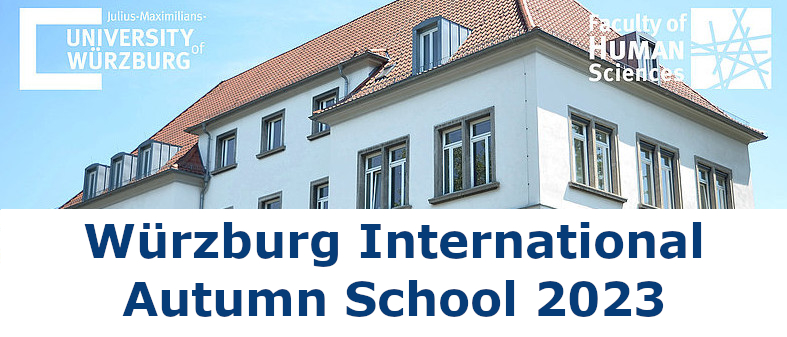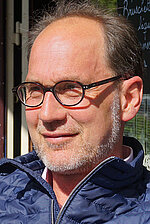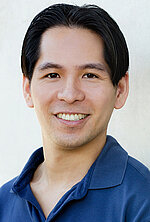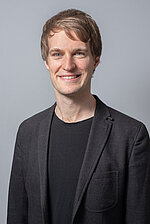Keynote Lectures

Monday, October 9, 2023 — Veronica Yan

Going beyond the interleaving effect: Mechanisms underlying generalizability and heterogeneity — Veronica Yan, University of Texas at Austin, USA
For many instructors and learners, the prevailing intuition is to focus instructor or study to just one concept at a time (blocking). Yet, empirical cognitive psychology literature has shown a very counterintuitive finding: that mixing up the practice of different, but related concepts, can be in fact be better for learning (interleaving). But should we now let the pendulum swing fully in the other direction and interleave everything? How do different sequences of learning differentially guide learners’ attention and impact long-term retention? I will present evidence for current theories, discuss their practical implications, and raise the next set of open empirical questions.
Tuesday, October 10, 2023 — Shana Carpenter

The benefits of “pretrieval practice”: Why it is useful to ask students questions before they learn — Shana Carpenter, Oregon State University, USA
Practicing to retrieve information enhances learning. In nearly all of the studies on retrieval practice, students retrieve information after they have been introduced to it via a lecture or reading assignment. Less is known about the effects of asking students questions before they learn something. This talk presents a series of laboratory- and classroom-based studies on the benefits of “prequestions.” Although prequestions routinely enhance memory for the information relevant to the prequestions, they are less consistent at benefiting memory for other information from a lesson that is not relevant to the prequestions. New data are presented that demonstrate both specific and general benefits of prequestions, and suggest specific ways to administer prequestions that maximize the amount of information learned.
Wednesday, October 11, 2023 — Alexander Renkl

Exploiting "laboratory effects" in the field: Why theory is key — Alexander Renkl, University of Freiburg, Germany
One major claim of this talk is that (educational) psychology has a serious theory deficit. Admittedly, there are often local theoretical accounts ("mini theories") that try to explain effects found in the laboratory by focusing on very specific aspects. However, meta-analyses regularly show that such effects are moderated by a substantial number of variables related to contextual characteristics and the way a procedure or intervention is implemented. Typically, there is no theory that can account for the set of moderator variables found in meta-analyses. This deficit is not only a problem for the basic science aspects of (educational) psychology but it also hinders application in two ways. First, there is no theoretical rationale for deciding which set of context and implementation variables should be considered in field studies in order to obtain similar effects as in the laboratory. Second, there is no theoretical rationale that can be handed over to teachers or instructional designers to help them adapt the "lab-effective" procedures or treatments to their contexts or after initial sub-optimal applications. Overall, researchers should place more emphasis on theory, beyond focusing on in vogue trends in methodology (e.g., open science, alternative forms of hypothesis testing). The preceding arguments are illustrated mainly by the case of desirable-difficulty effects.
Thursday, October 12, 2023 — Steven Pan

The pedagogical benefits of guessing: Evidence from pretesting, prequestions, and errorful generation research — Steven Pan, National University of Singapore, Singapore
From an educational standpoint, is it helpful to make a guess about something that one does not know very well? A growing body of research suggests that making incorrect guesses can be helpful provided that there is an opportunity to study the correct answers afterwards. I will discuss recent findings on how incorrect guessing in the form of “pretests,” “prequestions,” or “errorful generation” can affect memory, comprehension, transfer, and metacognition. These results shed new light on a new class of evidence-based learning strategies that have the potential to promote lasting learning and other desirable educational outcomes.
Friday, October 13, 2023 — Garvin Brod

Gauging the effects of generative learning activities: In the lab and in the wild — Garvin Brod, Leibniz Institute for Research and Information in Education & Goethe University Frankfurt, Germany
I will present recent research in which we have examined the effectiveness of generative learning activities for improving children’s learning of facts and plans. We have conducted both computerized laboratory studies as well as ambulatory studies in which both studying and testing took place on children’s smartphones using a self-developed app. Initial results indicate that no single generative activity is most effective for every child. Instead, we found massive individual differences related to children's age and analogical reasoning abilities, among other factors. Finally, I will discuss implications for the design of personalized educational technologies.
Go back to website of the Department of Psychology IV , University of Würzburg (Prof. Dr. Tobias Richter)


